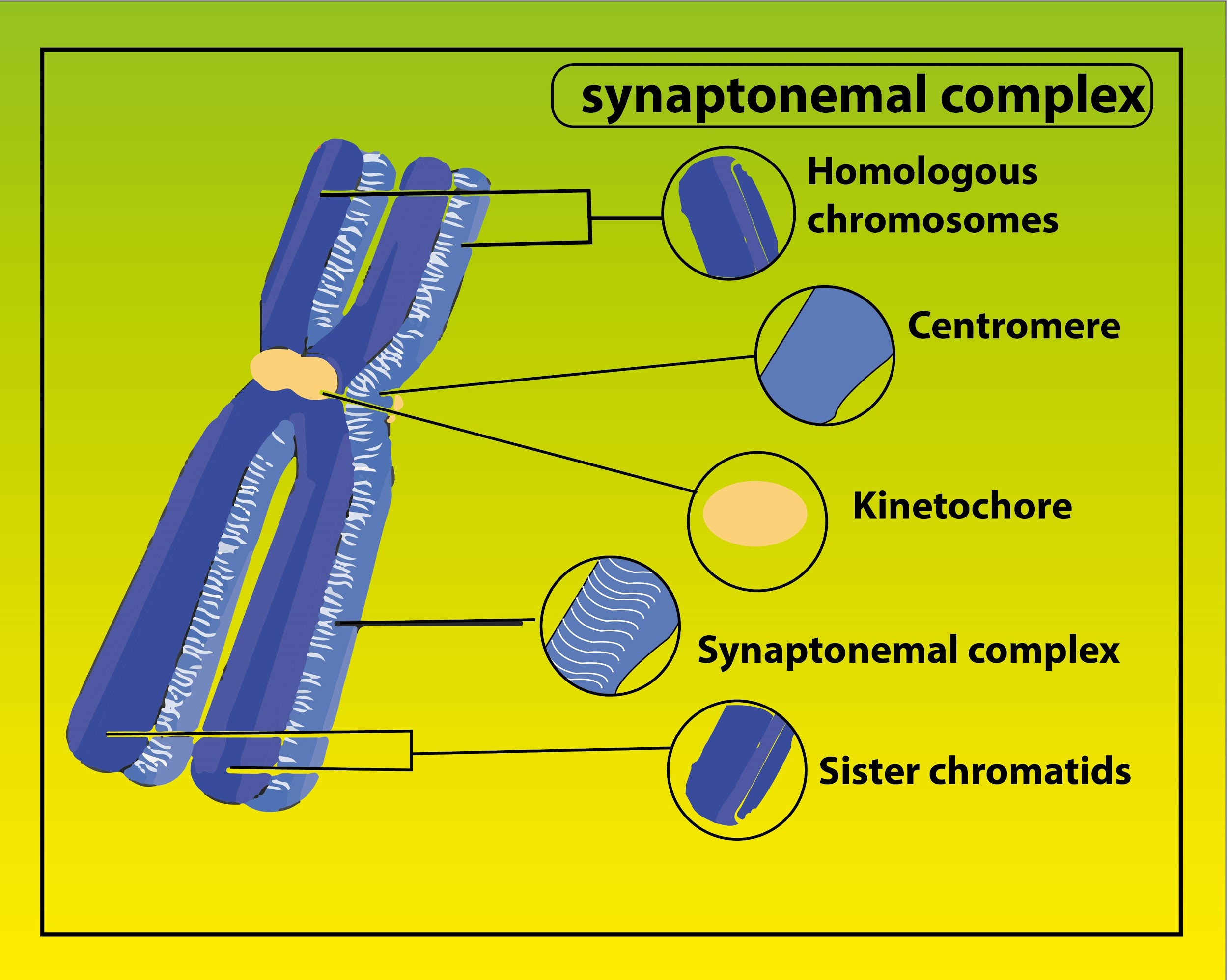
What develops between the homologous chromosomes during zygotene.
(a)Cohesion force
(b)Synaptic force
(c)Both A and B
(d)Adhesion
Answer
565.2k+ views
Hint: During Meiosis-I of cell division, homologous chromosomes pair and take part in a process known as crossing over. The process of homologous chromosomes pairing is known as synapsis and crossing over leads to genetic variations in the offsprings.
Complete answer:
Synaptic force is the force that develops between the homologous chromosomes during the zygotene stage. In this stage, the homologous chromosomes pair together with the help of specialized proteins known as synaptonemal proteins that help stabilize the chromosomes and promote crossing over. This process is known as synapsis which is followed by crossing over in the pachytene stage. This crossing over leads to new genetic combinations which alter the phenotype of the offsprings as well. Such variations, in the long run, lead to the evolution of organisms.
Additional Information: The prophase I of Meiosis I is further divided into 5 stages as there are a lot of events taking place in it.
Leptotene: It is the first stage of prophase I and the process of condensation of chromosomes begin in it. Homologous chromosomes start pairing with each other.
Zygotene: It is the second stage of prophase-I in which synapsis takes place with the formation of the synaptonemal complex. The paired chromosomes are known as bivalents or tetrads.
Pachytene: It is the third stage in which recombination of the genetic material takes place due to the crossing over of non-sister chromatids of homologous chromosomes.
Diplotene: It is the fourth stage in which crossing over gets fully completed. But there are still visible junctions between the chromosomes where crossing over took place known as chiasmata.
DIakinesis: It is the fifth stage in which the full chromosome condensation occurs and the chromosomes move towards the equator for the next stage of meiosis-I known as metaphase-I.
So, the correct option is ‘Synaptic force’.
Note: -Meiosis is known as reductional division as chromosomes number becomes half after it occurs. It takes place when there is a gamete formation.
-The term zygotene means paired threads because in this stage the pair homologous chromosomes look like paired threads.
-The zygotene stage is also known as the bouquet stage because all the telomeres of chromosomes cluster at one end of the nucleus.

Complete answer:
Synaptic force is the force that develops between the homologous chromosomes during the zygotene stage. In this stage, the homologous chromosomes pair together with the help of specialized proteins known as synaptonemal proteins that help stabilize the chromosomes and promote crossing over. This process is known as synapsis which is followed by crossing over in the pachytene stage. This crossing over leads to new genetic combinations which alter the phenotype of the offsprings as well. Such variations, in the long run, lead to the evolution of organisms.
Additional Information: The prophase I of Meiosis I is further divided into 5 stages as there are a lot of events taking place in it.
Leptotene: It is the first stage of prophase I and the process of condensation of chromosomes begin in it. Homologous chromosomes start pairing with each other.
Zygotene: It is the second stage of prophase-I in which synapsis takes place with the formation of the synaptonemal complex. The paired chromosomes are known as bivalents or tetrads.
Pachytene: It is the third stage in which recombination of the genetic material takes place due to the crossing over of non-sister chromatids of homologous chromosomes.
Diplotene: It is the fourth stage in which crossing over gets fully completed. But there are still visible junctions between the chromosomes where crossing over took place known as chiasmata.
DIakinesis: It is the fifth stage in which the full chromosome condensation occurs and the chromosomes move towards the equator for the next stage of meiosis-I known as metaphase-I.
So, the correct option is ‘Synaptic force’.
Note: -Meiosis is known as reductional division as chromosomes number becomes half after it occurs. It takes place when there is a gamete formation.
-The term zygotene means paired threads because in this stage the pair homologous chromosomes look like paired threads.
-The zygotene stage is also known as the bouquet stage because all the telomeres of chromosomes cluster at one end of the nucleus.

Recently Updated Pages
Master Class 11 Computer Science: Engaging Questions & Answers for Success

Master Class 11 Business Studies: Engaging Questions & Answers for Success

Master Class 11 Economics: Engaging Questions & Answers for Success

Master Class 11 English: Engaging Questions & Answers for Success

Master Class 11 Maths: Engaging Questions & Answers for Success

Master Class 11 Biology: Engaging Questions & Answers for Success

Trending doubts
One Metric ton is equal to kg A 10000 B 1000 C 100 class 11 physics CBSE

There are 720 permutations of the digits 1 2 3 4 5 class 11 maths CBSE

Discuss the various forms of bacteria class 11 biology CBSE

Draw a diagram of a plant cell and label at least eight class 11 biology CBSE

State the laws of reflection of light

Explain zero factorial class 11 maths CBSE




